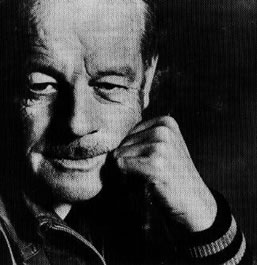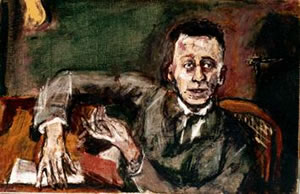De Azteekse dichter en filosoof Nezahualcóyotl werd geboren in Texcoco op 28 april 1402. Hij was koning van Acolhuacan, een deelstaat van het Azteekse Rijk. Onder zijn bestuur bloeide de hoofdstad Texcoco op. Het werd de belangrijkste stad, op Tenochtitlan na, binnen het Azteekse rijk. Nezahualcóyotl was ook vaardig in technische zaken. Er werd van hem gezegd dat hij persoonlijk de dijk door het Texcocomeer heeft ontworpen. Hij liet bovendien een botanische en dierentuin aanleggen. Hij liet de wetten van Texcoco opschrijven en bewaren in een bibliotheek, de eerste in Amerika. De Spaanse veroveraars zouden Texcoco later “het Athene van het westelijk halfrond” noemen. Nezahualcóyotl was de zoon van koning Ixtlilxochitl I en zijn vrouw Matlalcihuatzin, een dochter van de Azteekse keizer Huitzilihuitl. Nezahuatlcoyotl was er vanuit een boom getuige van hoe zijn vader in 1418 of 1419 door koning Tezozomoc van Atzcapotzalco werd vermoord. Nezahualcóyotl werd gevangen genomen. Met behulp van een vriend van zijn vader wist hij te overleven. Deze verkleedde zich als Nezahualcóyotl zodat de soldaten van Tezozomoc hem doodden, in de veronderstelling dat ze Nezahualcóyotl te pakken hadden. De echte Nezahualcóyotl wist te ontvluchten naar Tenochtitlan, en hij zwoer de dood van zijn vader te wreken. Nezahuatlcoyotl wordt in Mexico beschouwd als symbool van verzet tegen onderdrukking en tirannie. Hij was een aanhanger van de monotheïstische religie omtrent de godheid Tloque Nahuaque, terwijl het grootste deel van zijn bevolking aanhanger was van de polytheïstische Azteekse religie. Om zijn onderdanen niet te kwetsen besteedde Nezahualcóyotl ook aandacht aan de reguliere Azteekse goden. Nezahualcóyotl probeerde de zelfstandigheid van Texcoco ten opzichte van de Azteken uit Mexico-Tenochtitlan te bewaren. Hij voerde een politiek die haast pacifistisch is te noemen. Hij verwierp de Azteekse oorlogszuchtigheid en was fervent tegenstander van de bloemenoorlogen. Er zijn ongeveer 30 gedichten van Nezahualcóyotl bewaard gebleven. Nezahualcóyotl stierf in 1472 op 70-jarige leeftijd. Hij liet 110 kinderen na, van talloze vrouwen en bijvrouwen. Hij werd opgevolgd door zijn zoon Nezahualpilli.
SONG OF THE FLIGHT
In vain I was born. Ayahue.
In vain I left the house of god and came to earth. I am so wretched! Ohuaya, Ohuaya!
I wish I’d never been born, truly that I’d never come to earth. That’s what I say. But what is there to do? Do I have to live among the people? What then? Princes, tell me! Aya. Ohuaya, Ohuaya!
Do I have to stand on earth? What is my destiny? My heart suffers. I am unfortunate. You were hardly my friend here on earth, Life Giver. Ohuaya, Ohuaya!
How to live among the people? Does He who sustains and lifts men have no discretion? Go, friends, live in peace, pass your life in calm! While I have to live stooped, with my head bent down when I am among the people. Ohuaya, Ohuaya!
For this I cry – Yeehuya!- feeling desolate, abandoned among men on the earth. How do you decide your heart – Yeehuya! – Life Giver? Already your anger is vanishing, your compassion welling! Aya! I am at your side, God. Do you plan my death? Ohuaya, Ohuaya!
Is it true we take pleasure, we who live on earth? Is it certain that we live to enjoy ourselves on earth? But we are all so filled with grief. Are bitterness and anguish the destiny of the people of earth? Ohuaya, Ohuaya!
But do not anguish, my heart! Recall nothing now. In truth it hardly gains compassion on this earth. Truly you have come to increase bitterness at your side, next to you, Oh Life Giver. Yyao yyahue auhuayye oo huiya.
I only look for, I remember my friends. Perhaps they will come one more time, perhaps they will return to life? Or only once do we perish, only one time here on earth? If only our hearts did not suffer! next to, at your side, Life Giver. Yyao yyahue auhuayye oo huiya.
Vertaald door John Curl
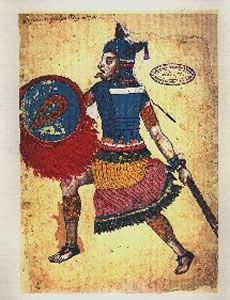
Nezahualcóyotl (28 april 1402 – 4 juni 1472)
De Joods-Oostenrijkse dichter, schrijver en journalist Karl Kraus werd geboren in Jičin, Bohemen, Oostenrijk-Hongarije (thans Tsjechië) op 28 april 1874. Zie ook mijn blog van 28 april 2007.
In diesem Land
In diesem Land wird niemand lächerlich,
als der die Wahrheit sagte. Völig wehrlos
zieht er den grinsend flachen Hohn auf sich.
Nichts macht in diesem Lande ehrlos.
In diesem Land münzt jede Schlechtigkeit,
die anderswo der Haft verfallen wäre,
das purste Gold und wirkt ein Würdenkleid
und scheffelt immer neue Ehre.
In diesem Land gehst du durch ein Spalier
von Beutelschneidern, die dich tief verachten
und mindestens nach deinem Beutel dir,
wenn nicht nach deinem Gruße trachten.
In diesem Land schließt du dich nicht aus,
fliehst du gleich ängstlich die verseuchten Räume.
Es kommt die Pest dir auch per Post ins Haus
und sie erwürgt dir deine Träume.
In diesem Land triffst du in leer Luft,
willst treffen du die ausgefeimte Bande,
und es begrinst gemütlich jeder Schuft
als Landsmann dich in diesem Lande.
Vergleichende Erotik
So wird das Wunderbild der Venus fertig:
Ich nehme hier ein Aug, dort einen Mund,
hier eine Nase, dort der Brauen Rund.
Es wird Vergangenes mir gegenwärtig.
Hier weht ein Duft, der längst verweht und weit,
hier klingt ein Ton, der längst im Grab verklungen.
Und leben wird durch meine Lebenszeit
das Venusbild, das meinem Kopf entsprungen.
Und liebst doch alle, liebt dich einer so
So brauchst du niemand außer dir zu lieben
und liebst doch alle, liebt dich einer so.
Und länger weilt der Augenblick, wo hüben
dein
Auge blickt, der Ewigkeiten froh.
Und Freudenfeuer brannten lichterloh,
als ich aus jenes Zweikampfs Kräftemessen
in deine unbesiegte Ohnmacht floh,
und Wissen sank in seliges Vergessnen.
Sag mir die Landschaft, die dein Auge sah,
da du dir nichts und alles ließt gefallen,
und welcher Himmelskörper war dir nah?
Und welche Sphäre hörtest du erschallen?
Denn außer dir war nichts zur Liebe da,
und sie war nicht von einem, nur von allen.

Karl Kraus (28 april 1874 – 12 juni 1936)
De Franse dichter Auguste Barbier werd geboren op 28 april 1805 in Parijs. Hij werd op slag bekend door zijn bundel Iambes uit 1830, een serie heftige gedichten, geïnspireerd door de Julirevolutie. Het bekendst is het gedicht La Curée. Latere bundels, zoals Lazare uit 1837, behaalden hetzelfde niveau niet meer. Andere werken van Barbier waren onder meer Les Mauvais Garçons, een satirische roman in samenwerking met Alphonse Royer, en Benvenuto Cellini, een operalibretto in samenwerking met Léon de Wailly (op muziek gezet door Hector Berlioz). Zijn benoeming tot lid van de Académie française in 1869 was vooral een politieke daad: Barbier was een uitgesproken tegenstander van het keizerrijk van Napoleon III.
Les Victimes
Une nuit je rêvais… et dans mon rêve sombre,
Autour d’un ténébreux autel,
Passaient, passaient toujours des victimes sans nombre,
Les bras tendus vers l’éternel.
Toutes avaient au front une trace luisante ;
Toutes, comme un maigre troupeau
Qui laisse à l’écorcheur sa tunique pesante,
Portaient du rouge sur la peau.
Et toutes, ce n’étaient que vieillards à grand âge,
Le bâton d’ivoire à la main,
Comme ceux que la mort, en un jour de carnage
Trouva sur le fauteuil romain ;
Que jeunes gens amis, à la vaste poitrine,
Au coeur solide et bien planté,
Frappés, la bouche ouverte, et d’une voix divine
Chantant la belle liberté ;
Ce n’étaient que des corps meurtris et noirs de fange,
Du sable encor dans les cheveux,
Et battus bien longtemps, sur une rive étrange,
Des vents et des flots écumeux ;
Ce n’étaient que des flancs consumés par les flammes
Dans le creux des taureaux d’airain,
Que membres déchirés sous mille dents infâmes
Devant le peuple souverain ;
Que des porteurs divins de blessures infimes,
Des sages couronnés d’affront,
Des orateurs sacrés, des poètes sublimes,
Tombés en se touchant le front ;
Puis des couples d’amants, puis la foule des mères
Traînant leurs enfants par le bras,
Et les petits enfants pleins de larmes amères
Et soupirant à chaque pas
Et ces ombres, hélas ! Avides de justice,
Plaintives, les mains dans les airs,
Demandaient vainement le prix du sacrifice
Au dieu puissant de l’univers.
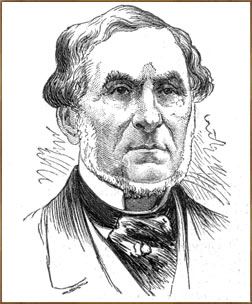
Auguste Barbier (28 april 1805 – 14 februari 1882)
De Tataarse dichter Ğabdulla Tuqay werd geboren op 28 april 1886 in Qoşlawıç in Kazan, Rusland (tegenwoordig Tatarstan). Zie ook mijn blog van 28 april 2007.
Uit: Oh My Mother Tongue!
Oh, beloved native language
Oh, enchanting mother tongue!
You enabled my search for knowledge
Of the world, since I was young
As a child, when I was sleepless
Mother sung me lullabies
And my grandma told me stories
Through the night, to shut my eyes
Oh, my tongue! You have been always
My support in grief and joy
Understood and cherished fondly
Since I was a little boy
In my tongue, I learned with patience
To express my faith and say:
“Oh, Creator! Bless my parents
Take, Allah, my sins away!”
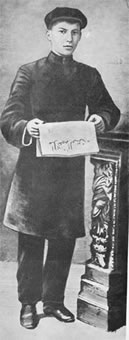
Ğabdulla Tuqay (28 april 1886 – 15 april 1913)
De Schotse schrijver Alistair Stuart MacLean werd geboren op 28 april 1922 in Glasgow. Zie ook mijn blog van 28 april 2007.
Uit: Fear Is the Key
“Gangsters and hoodlums are notoriously the world’s worst marksmen, their usual method being to come within a couple of yards before firing or spraying the landscape with a sufficient hail of bullets to make the law of averages work for them and I had heard a hundred times that those boys couldn’t hit a barn door at ten paces. But maybe Larry had never heard of this, or maybe the rule applied only to barn doors.”
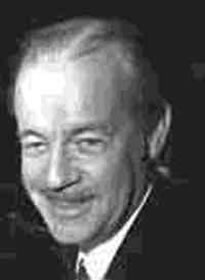
Alistair MacLean (28 april 1922 – 2 februari 1987)
Zie voor onderstaande schrijver ook mijn blog van 28 april 2007.
De Duitse schrijver Bruno Apitz werd geboren in Leipzig op 29 april 1900.

